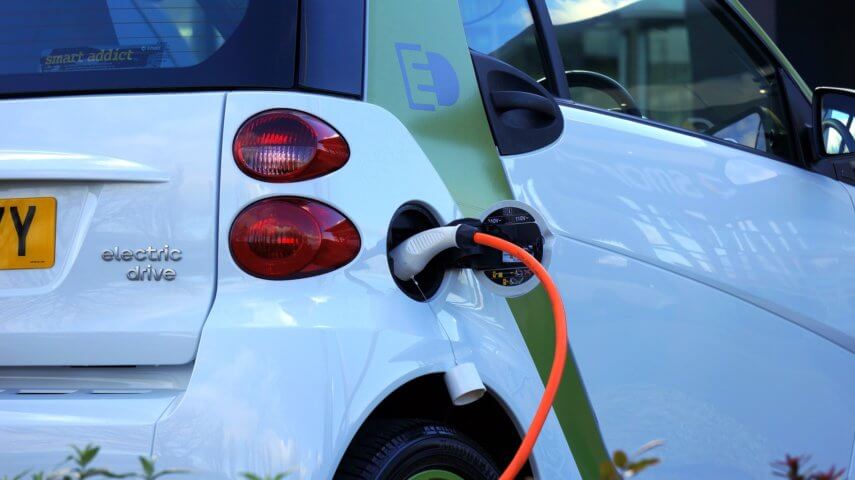Traditional Land of Wabanaki People/Fredericton – The Conservation Council of New Brunswick (CCNB) is pleased to see today’s launch of a three-year New Brunswick Electric Vehicle Incentive Program open to individuals and organizations. This important step will accelerate the transformation of the provincial vehicle fleet, an important contribution to solving climate change.
“New Brunswick’s incentive program is among the most generous in the Atlantic, links with federal incentives, and will be convenient for consumers when automobile dealers handle all the paperwork starting later this fall,” says Louise Comeau, Director of CCNB’s Climate Change and Energy Program.
According to the provincial announcement, people that purchase or lease new qualifying battery electric vehicles and long-range plug-in hybrid electric vehicles may receive up to $5,000. People that purchase or lease new short-range plug-in hybrids may receive up to $2,500. Those that buy used battery electric vehicles may receive up to $2,500 and purchasers of used plug-in hybrid electric vehicles may receive up to $1,000. People that receive a provincial electric vehicle rebate are also eligible for a rebate of up to $750 for the purchase and installation of a Level 2 home charging station. NB Power will provide rebates to purchasers once they provide proof of purchase until dealerships take over the processing of incentives.
Today’s announcement helps all of us who own cars and trucks to put gasoline pollution and costs behind us the next time we are in the market for a vehicle. An electric vehicle (EV) is the next best option after switching to public transit to save money and avoid the rising cost of carbon pollution. An electric vehicle saves $1,500 a year in fuel costs (a compact gasoline vehicle costs $2,000 in fuel/year; an electric vehicle, $500; a plug-in hybrid, $180 in electricity, $480 in fuel), according to NB Power.
Even more important to our health and well-being today and to future generations is the greenhouse gas impact. Greenhouse gas emissions from road transportation in New Brunswick – that includes family vehicles, public transit, garbage trucks, and transport trucks – contributed 23 per cent of New Brunswick’s 12.4 million tonnes of annual greenhouse gas emissions in 2019. Light duty cars and trucks generate almost 70% of that amount. Each car, on average, generates 4.6 tonnes of carbon dioxide each year (based on 2,000 litres fuel a year), according to Natural Resources Canada because Canadians buy large, inefficient vehicles. Changing our transportation habits is one of the biggest contributions consumers can make to slowing climate change.
About three-quarters of New Brunswick’s electricity supply emits no greenhouse gas emissions (nuclear, hydro and renewable) meaning even with the remaining power from coal, oil and gas, each electric vehicle generates a net benefit to the atmosphere and the climate. As NB Power phases out its fossil fuel plants, emissions reductions will be even greater. CCNB wants to see NB Power fossil fuel-powered plants phased out over the next ten years and replaced with cost effective renewable energy and storage technologies.
The province’s Climate Action Plan committed to getting 2,500 electric vehicles on the road by 2020 and 20,000 by 2030. The province has yet to achieve the 2020 target, with just under 700 electric vehicles on the road at the end of 2020.
New Brunswick now joins its neighbours—Nova Scotia, P.E.I., Newfoundland and Labrador, in offering a rebate for electric and hybrid vehicle purchases. In Canada, Atlantic incentives run up to between $2,000 to $2,500 for plug-in hybrids (PEI, NS) and $2,500 (NL), $3,000 (NS), and $5,000 (PEI) for EVs. Maine offers a low-income incentive of $5,500 USD for new EVs, $4,000 USD for a plug-in-hybrid, and $2,500 USD for used EVs and plug-in hybrids. Maine offers other consumers $2,000 USD for a new EV and $1,000 USD for a new plug-in hybrid. Quebec is the most generous offering $8,000 for a new EV and $500 to $8,000 for a plug-in hybrid depending on battery size. The federal government’s incentive is up to $5,000 for a new EV and up to $2,500 for a plug-in hybrid. Most incentives apply to vehicles costing less than $45,000 to $55,000 depending on number of seats (federal, NS, PEI), and less than $60,000 in Quebec. New Brunswick’s incentive program is comparable to PEI.
“New Brunswick now joins the EV club, and is taking a real step forward in helping the province prepare for new federal standards ending the sale of internal combustion engine vehicles, by 2035”, says Comeau. Future revisions to the NB Incentive Program should consider the needs of low-income households.
-30-
To arrange an interview, contact:
Louise Comeau, Director, Climate Change and Energy Program, Conservation Council of New Brunswick | louise.comeau@conservationcouncil.ca | 506-238-0355

